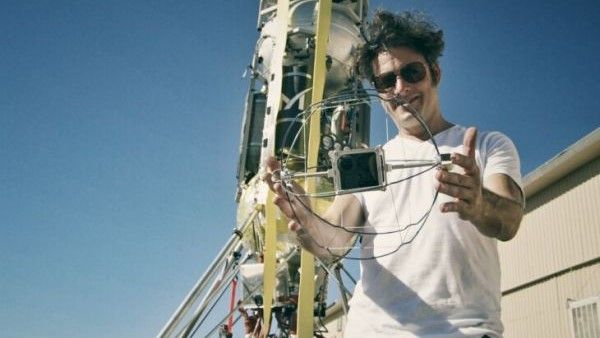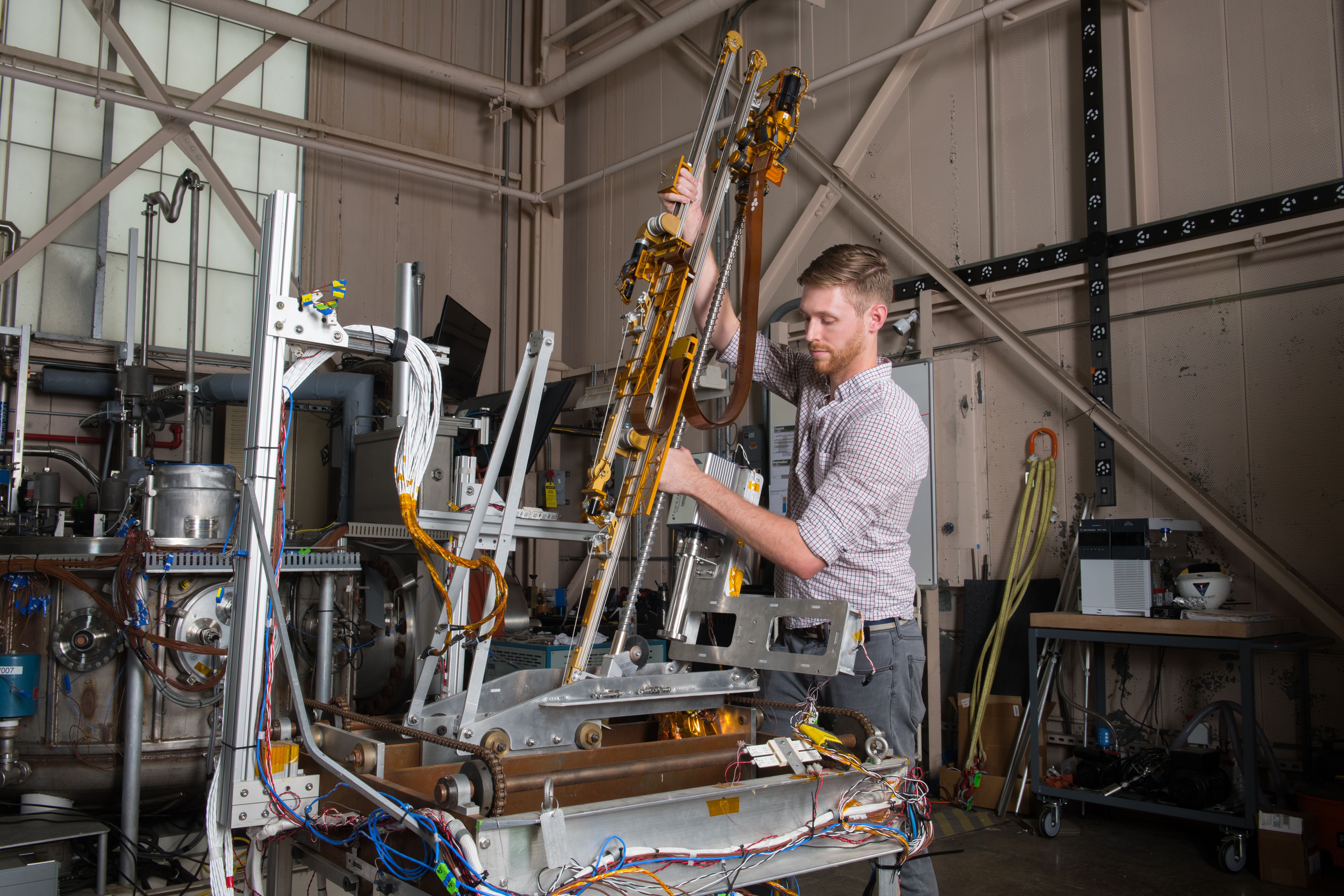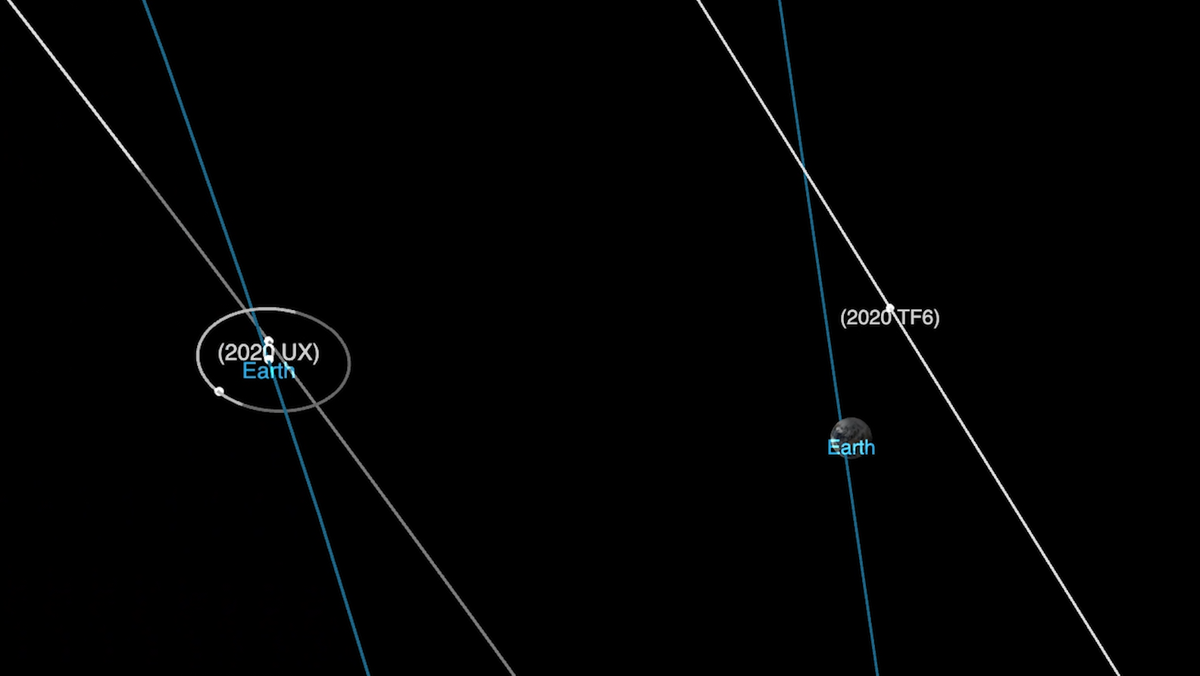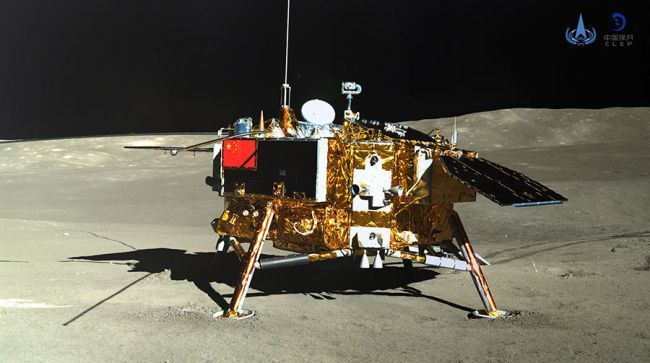
NASA's Flight Opportunities program has just awarded a $650,000 grant to the team behind Lunar ExoCam, an imaging system designed to eject from moon landers during descent and record video of their touchdowns from the otherworldly gray ground.
If development continues to go well, Lunar ExoCam could be ready to fly on some of the private robotic landers that are scheduled to launch toward the moon in the next few years, said the project's principal investigator, Jason Achilles Mezilis. And he'd love to get the camera system aboard NASA's Artemis 3 mission , which aims to land two astronauts near the lunar south pole in 2024.
Many things are taking place:
NASA picks partner to land water-measuring technology on the moon | Fox Business

Jim Bridenstine, NASA Administrator on the space agencies plans for the moon and its potential impact on the U.S. economy.
NASA has picked Houston-based Intuitive Machines to land a water-measuring technology on the moon.
* * *
The space agency has awarded Intuitive Machines an approximately $47 million contract to deliver a drill combined with a mass spectrometer to the lunar surface by December 2022.
The moon looms large in America's future. NASA’s Artemis program aims to land American astronauts on the moon by 2024 and establish a sustainable human presence on Earth’s natural satellite.
Got Any Signal Up Here? Nokia to Build Mobile Network on Moon | Voice of America - English

HELSINKI, FINLAND - Finland's Nokia has been selected by NASA to build the first cellular network on the moon, the company said on Monday.
The lunar network will be part of the U.S. space agency's efforts to return humans to the moon by 2024 and build long-term settlements there under its Artemis program.
Nokia said the first wireless broadband communications system in space would be built on the lunar surface in late 2022, before humans make it back there.
2 small asteroids zip by Earth closer than the moon today | Space

Two small asteroids will fly by Earth today (Oct. 19) at a range that's closer than the moon, a space rock double flyby that comes as NASA gears up for an asteroid encounter of its own.
The asteroids 2020 UX and 2020 TF6, both discovered in the last week, will be less than half the distance of Earth's moon (when they pass by today, but pose little threat to our planet. The moon, on average, is about 239,000 miles (385,000 kilometers) from Earth.
This may worth something:
How Luna 3 first unveiled the Moon's farside | Astronomy.com
China unveils ambitious moon mission plans for 2024 and beyond | Space

China has a mission operating on the far side of the moon and is preparing to launch another this year to collect lunar samples. And the country plans to add to its impressive lunar resume, with a new set of missions to explore the moon's south pole.
Chang'e 6, a backup mission for this year's sample-return launch, is scheduled to head to the moon in 2023 or 2024; Chang'e 7 is planned to launch around 2024 with the dual aims of landing on the south pole of the moon and closely studying the region from orbit. An eighth mission is also in the works for later this decade.
The Moon may have acted as a protective shield for a young Earth

Around 4 billion years ago , a massive object the size of Mars collided with a young, developing Earth.
The collision tossed vaporized particles from the Earth into space, which were then bound together through gravity to form the Moon.
* * *
When it first formed, the Moon was three times closer to Earth than it is today — some 80,000 miles away, For context, it is now 238,000 miles from Earth.
Lunar samples returned by astronauts during the Apollo missions revealed the Moon once had a magnetic field like Earth's, which acted as a shield from electrical charges.
Countries won't sign this Moon exploration agreement because it's too 'US-centric'

Eight countries have signed the Artemis Accords , a set of guidelines surrounding the Artemis Program for crewed exploration of the Moon. The United Kingdom, Italy, Australia, Canada, Japan, Luxembourg, the United Arab Emirates , and the US are now all participants in the project, which aims to return humans to the moon by 2024 and establish a crewed lunar base by 2030.
This may sound like progress. Nations have for a number of years struggled with the issue of how to govern a human settlement on the Moon and deal with the management of any resources. But a number of key countries have serious concerns about the accords and have so far refused to sign them.
Happening on Twitter
'Lunar ExoCam' project aims to film spacecraft touchdowns on the moon https://t.co/945J8EmxS0 https://t.co/gGQDW44Z5s SPACEdotcom (from NYC) Mon Oct 19 12:56:04 +0000 2020
Gotta hit them angles. https://t.co/uCVC5NEaM3 futurism (from Brooklyn, NY) Mon Oct 19 16:45:55 +0000 2020
No comments:
Post a Comment